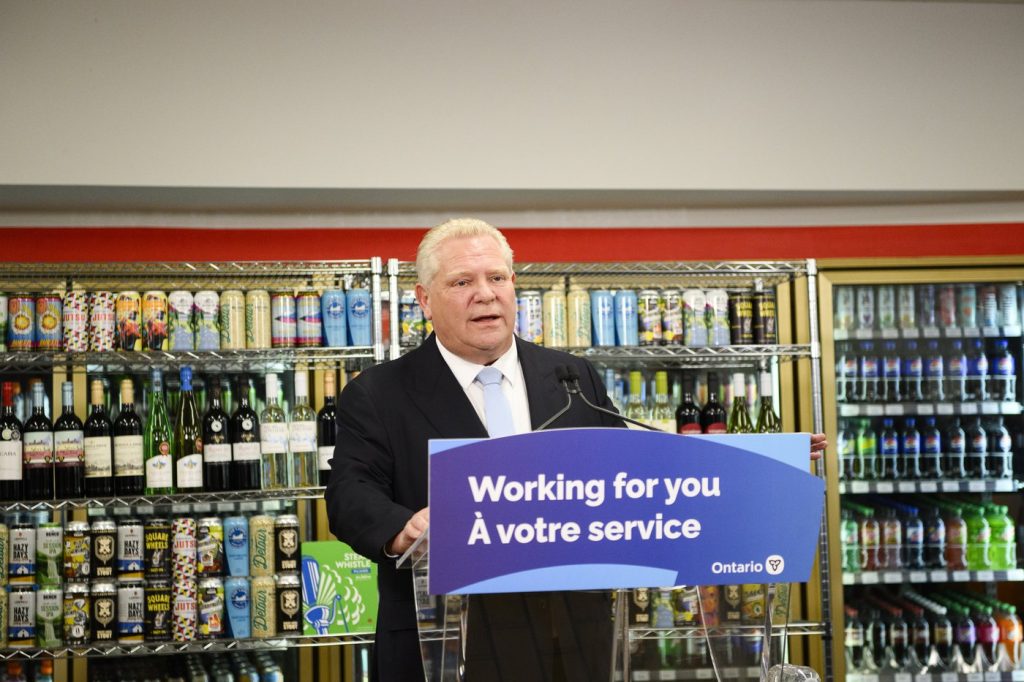Ontario lacks a health-care plan for alcohol harms as sales expand: health coalition

Posted Oct 31, 2024 10:00:40 AM.
Last Updated Oct 31, 2024 11:44:24 AM.
Premier Doug Ford’s government has no strategy to mitigate problems that could result from the province’s newly liberalized alcohol sales rules, a health coalition said Thursday, warning that more death, cancer diagnoses and emergency department strains are on the horizon.
The coalition, which includes the Canadian Mental Health Association, the Canadian Public Health Association, the Canadian Cancer Society and the Centre for Addiction and Mental Health, said the province has not responded to its request to work together to come up with a plan addressing the possible harms.
“Somebody should be paying attention to what we firmly believe is on the horizon,” said Camille Quenneville, CEO of the Ontario branch of the Canadian Mental Health Association.
“And there doesn’t appear to be any thought or interest in having a conversation or sitting down and figuring out how we might be able to deal with this.”
Thursday marks the province’s final stage of opening up the alcohol sales market as grocery stores that are not already selling booze can stock their shelves with beer, wine and coolers.
The province said it is spending $10 million over five years to support social responsibility and public-health efforts, although it has not provided details on what that entails.
The Alcohol and Gaming Commission of Ontario said it has issued new licences to just over 400 grocery stores across the province in addition to the 450 that are already licensed. It said it has issued licences to 4,707 convenience stores, which have been able to sell booze since early September.
“In a province where we’re already seeing nearly 700 emergency departments visits due to alcohol every day, and we have a health system that is under extreme strain, it just doesn’t seem logical that the government is pursuing this massive expansion without the implementation of any kind of alcohol strategy for the province to mitigate some of the harms that we know are going to be associated with this expansion,” said Ian Culbert, executive director of the Canadian Public Health Association.
The coalition says research out of British Columbia, which partially privatized alcohol sales some two decades ago, offers a guide post for what’s coming.
They point to a study that shows for every 10 per cent increase in privately owned stores selling alcohol, there was a 1.5 per cent increase in consumption.
With a 300 per cent increase in Ontario locations selling alcohol, the province could see a 45 per cent increase in booze consumption, the coalition says.
The coalition projects the number of deaths caused by alcohol could jump from 6,200 to 9,100 per year in Ontario if trends researched in B.C. hold true.








